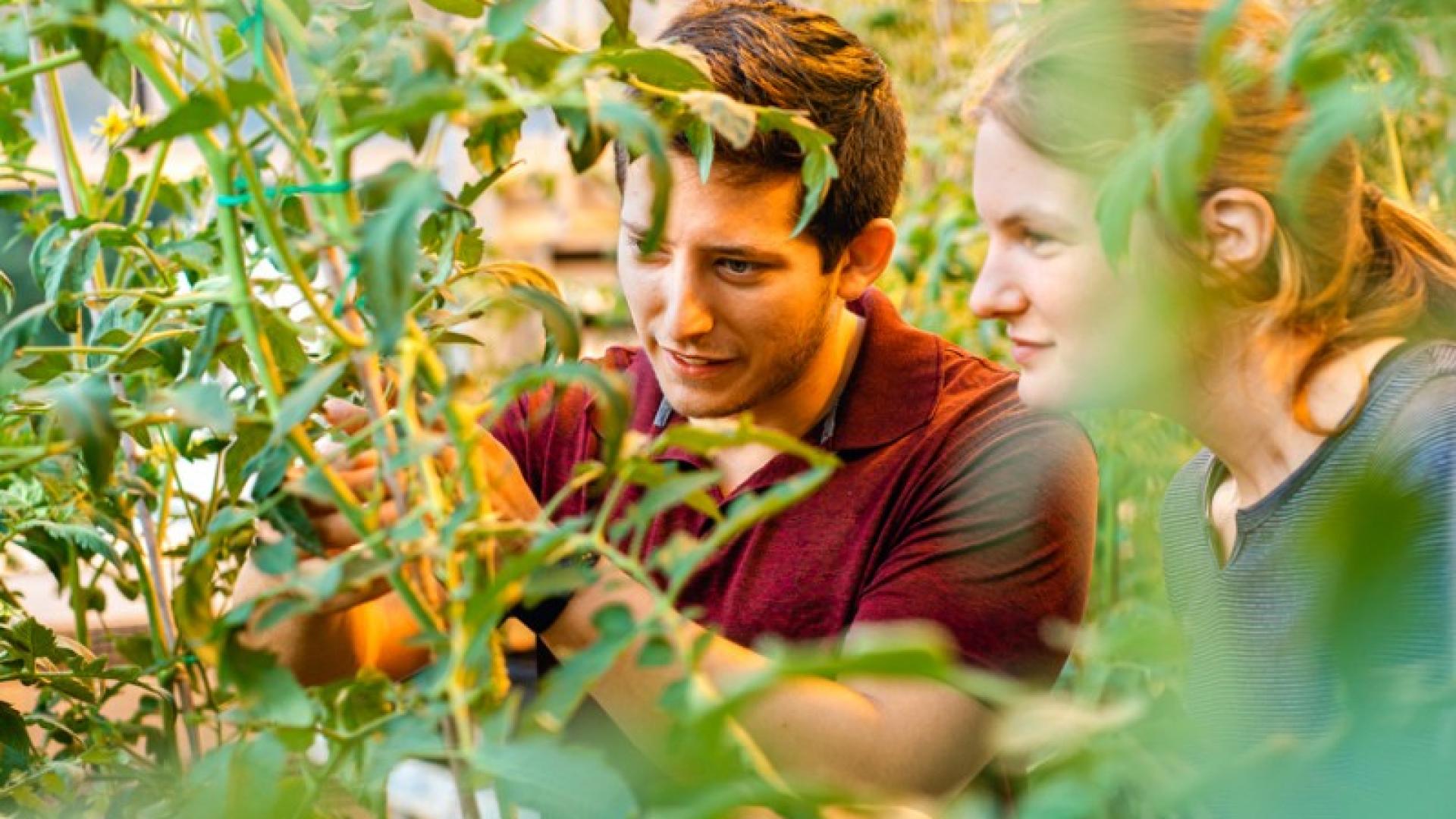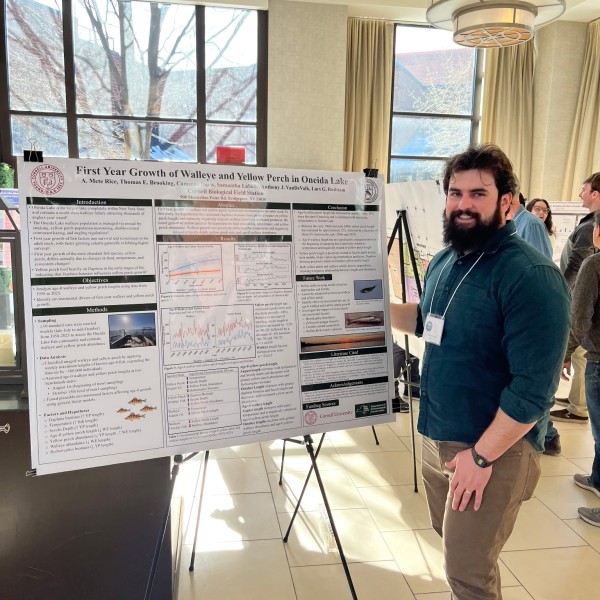In a new paper, Cornell researchers showed that wild tomato varieties are less affected by bacterial canker than traditionally cultivated varieties. The paper, “Characterizing Colonization Patterns of Clavibacter michiganensis During Infection of Tolerant Wild Solanum Species,” published online in November in the journal Phytopathology.
Co-authors were Christine Smart, professor of plant pathology and plant-microbe biology in the College of Agriculture and Life Sciences; F. Christopher Peritore-Galve, a doctoral student in the Smart Lab; and Christine Miller, a 2018 Smart Lab undergraduate summer intern from North Carolina State University.
“Bacterial canker is pretty bad in New York,” Peritore-Galve said, “but it’s distributed worldwide, everywhere tomatoes are grown.”
The pathogen causes wounding and is spread by wind-blown rain; if one tomato gets infected, it can spread from plant to plant.
“Bacterial canker certainly can cause the complete loss of a field of tomatoes, and we see outbreaks of the disease every year,” Smart said. “Growers use disease management strategies, including spraying plants with copper-based products; however, once there is an outbreak it’s difficult to control bacterial canker.”
To combat diseases, plant pathologists and breeders often look for varieties that are resistant, but among tomatoes traditionally grown for market, there are none with genetic resistance to bacterial canker. So Peritore-Galve, Miller and Smart went back to the beginning.






